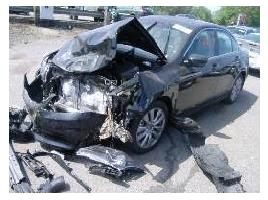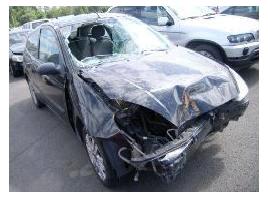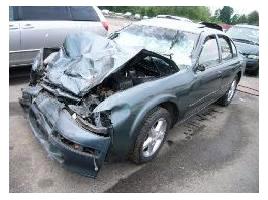Ask an Attorney a Question for FREE!
Prior Damage Claim
How do adjusters identify it?

Adjusters are trained to ask for and detect prior damage.
It is simple. If they find any, they can decrease what they have to pay you for your claim.
They need to put you back to the position that you were in before the impact.
Therefore, if you have a car with a dented door, then the insurance company will give you back a car with a dented door. They do not have to replace the door and give you a new one (or a used fixed one for that matter).
Insurance adjusters try to get you to admit you are in a “prior damage claim situation” before you know how much they will depreciate your repairs.
In many claims, this is not a big deal. Prior damages may be minor. However, sometimes this can leave you with no compensation. A good example is if your car was damaged prior to being deemed a total loss.
In that case, they will not pay you for a total loss. Rather, they will pay you for the value of your car as if it was scrap (its salvage value).
When adjusters come to inspect your car, they will be looking at your damages.
They will look for rust, mold, or anything else that can tell them conclusively that the damage is prior to the accident.

They will also look to see if there is blood, hair, and/or other indications that the accident did not occur as how you described.
If there are indications of “possible prior damage” and you have a new policy, then there will be coverage “issues” and the carrier will tell you that they cannot provide coverage until the investigation is concluded.
On the other hand, if you have been insured with the same carrier for a long time, then the insurance company will (or should anyway) review your entire claim file.
They will be able to see if you made claims in the past.
Believe it or not, there are people out there that think they can get away with making the same claim twice (to the same insurance company).
Insurance companies will make sure that you get prosecuted for insurance fraud, so do not attempt this.
The insurance carrier has the burden of showing that there is prior damage. They must show this with actual physical evidence, a confession of a prior damage, evidence that you filed a claim before, or a title report (in the case of a total loss).
If they cannot show any of the above, the insurance company will have a hard time proving that you had prior damage. Their evidence must be conclusive and it must be documented in writing.
However, if they have a recorded statement, it would be enough evidence.

Prior damage claims are also complicated because if prior damage exists, that prior damage must be evaluated.
In many occasions, an adjuster can look at your door and determine the “new” damage from the prior damage. However, in situations where prior damage is aggravated (you had prior damage to the driver door and it was hit again), the evaluation of the “new” damage can be very difficult.
If your door was dented, how dented was it? Was it completely destroyed? Or was the damage to it only a simple scratch?
You can argue and try to settle with the insurance company for a reduced percentage. For example, if the cost to repair the door is $700, you can ask for a reduction of %5, %10, or %15. Here is where your negotiation skills will come into play.
Remember, it is a negotiation and the insurance company must work with you.
1. Insurance Vehicle Repairs
2. Can I dispute the adjuster's estimate?
3. Auto Claim with Prior Damages
4. My car is on fire! Fire losses
5. Auto Damage Estimate
6. Diminished Value Claims
7. Vehicle Total Loss Part 1
8. Vehicle Total Loss Part 2
9. Rental Car Claim and Loss of Use Page 1
10. Rental Car Claim and Loss of Use Page 2
11. Stereo Equipment Claim
12. Personal Property Damage Claim
13. Sentimental Property Damage Claim
14. Damage to Real Property Claims
15. Animal Loss or Vet Bills Claim
|
For a Free Review of Your Case
Please Call (866) 878-2432 |


